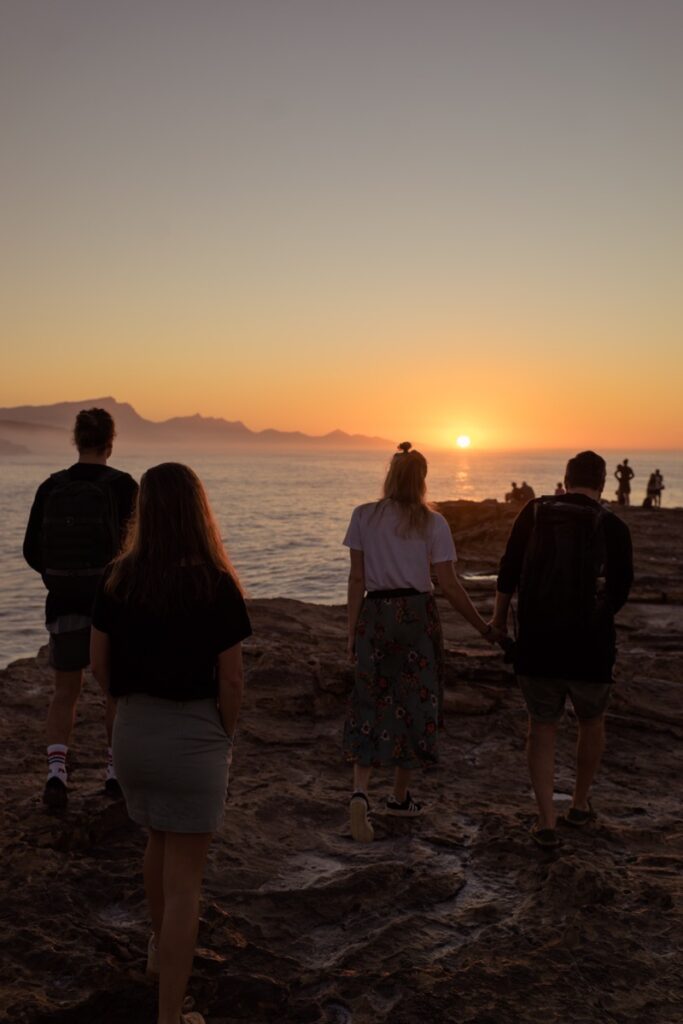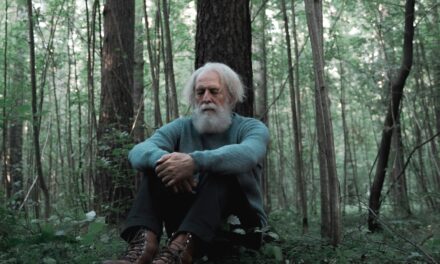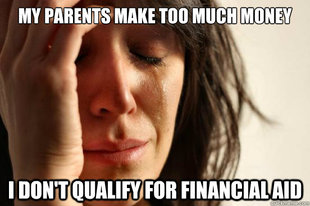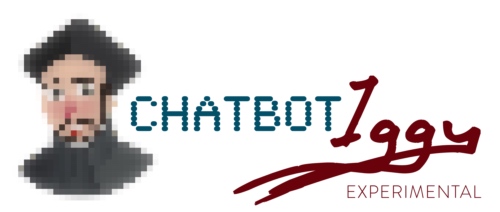How can we better understand the death and resurrection of Christ? It had to be about more than sin. Even in the formative centuries of doctrine and councils were orthodox theologies that moved us away from atonement and seeing Christ’s death as a result of sin, to seeing the cross as a sign of a humble God who does not does not let the temptations of evil (see Matt. 4:5-6) to overtake. We see that even the act of murdering Christ does not impede the Christ project.
Our human tendency is always to certainty. When the meteorologist says there’s a 20% chance of rain, we assume she’s saying it’s not going to rain. And when it does, we don’t account for it as that 2 out of 8 times it would rain. We assume the meteorologist doesn’t know what she’s doing. Nate Silver infamously predicted Hillary Clinton had a 71% chance of winning the 2016 presidential election. Which means in 29 out of 100 hypothetical elections Trump would win. When he did, Nate Silver was discredited, dismissing the reality of statistics and assuming he meant Clinton would surely win.
I name this human tendency to dismiss the complexities of life and reality because it manifests itself in religion. As someone once said, the opposite of faith is certitude. Most of us form our lives around a false sense of certitude, that the world is more black and white than it really is. Climate change, politics, and public health are reduced to overly simplistic soundbite statements and hunches. We look at the past overly nostalgically, blinded to the ways the world has grown toward more peace and unity.
The Spectrum of Diversity
Consider how even human diversity is not as simple as black and white, but more on a spectrum. There is a spectrum of skin colours and ethnicities, abilities, and body types. And all of it is very good and beautiful. I’ve noticed there is a spectrum of parenting: from those who devote the fullness of their vocation and energy to their children, while other parents spread some of their energy into other areas and vocational callings, while yet others do not feel called to be parents at all. We see this spectral diversity in kinds of marriages and relational commitments, all of which may be quite fruitful. And, more controversially, a spectrum of gender, apart from biological sex.
Of course we can zoom back and see the diverse spectrum of the entire plant and animal world, and the entire universe. It seems that God loves diversity. Yet, we can treat this colourful, rainbow-like diversity as a threat, because things don’t always seem to fit perfectly into our compartments and categories.
But what is the threat, really?
Scripture reveals the unexpected nature of reality, especially through the death and resurrection of Jesus Christ. What could fit less into our expectation that death is the end?
 Old Paradigms
Old Paradigms
Jesus’ work was not so much about restoring ‘order’ in the traditional sense, and fitting people into neat legal or ethnic categories (as we humans like to do). Rather, Jesus shook up those categories. As Sirach says, “When a sieve is shaken, the refuse appears.” The very paradigm of death and resurrection, as witnessed by Jesus’ followers and preached by Christianity, establishes the pattern of ridding the chaff from the old religious paradigms.
As Elijah discovered that God was not just almighty but in a still small voice, Paul realised that the Jewish paradigm he had held sacred with the law and the sacrifice, the circumcision and the social order, had become idols and distractions from the true God. The Jews would have discovered this themselves when their temple was destroyed and they were exiled, causing them to reimagine who God was and how God could be accessed and worshipped.
John the Baptist called people to a metanoia kind of conversion, a full sweeping out of the old so God’s Spirit can enter and shake things up.
“I’m baptizing you here in the river, turning your old life in for a kingdom life. The real action comes next: The main character in this drama—compared to him I’m a mere stagehand—will ignite the kingdom life within you, a fire within you, the Holy Spirit within you, changing you from the inside out. He’s going to clean house—make a clean sweep of your lives. He’ll place everything true in its proper place before God; everything false he’ll put out with the trash to be burned.” (Matthew 3:11-12 MSG)
The theologian James Alison writes, “to each purification of faith, there is a corresponding and simultaneous collapse of a whole series of elements which seemed to have been indispensable bulwarks of faith.” What once seemed sacred and divinely ordained are found to be idolatrous or humanly constructed. The resurrection ‘purifies’ our relationship with the divine and one another, ridding us of unhealthy religion and theology, leading us to deeper union with God and neighbour.
Even today when we look around and see participation in formal religion declining or the growing awareness of the spectrum of human reality, it may be a sign of a kind of ‘purification’ and collapse of the old order. It may simply be the continual process of faith being brought into being, and this process seldom fits into rigid boxes. “The cult of Yahweh,” Alison says, is about “not being scandalised by the collapse of the sacred.”
 Toward Oneness
Toward Oneness
Theologian Ilia Delio points out that the word catholicity means “wholemaking” and is therefore not static. Religion, she believes, will always be present, in that religion is the natural longing for us to be “bound to an ultimate source.” If we are continually seeking our collective wholeness, then it is a journey, a dynamic one, where old orders fall away and new life emerges. As God says:
See, I am creating new heavens and a new earth; The former things shall not be remembered nor come to mind. Instead, shout for joy and be glad forever in what I am creating. (Isaiah 65:17-18a)
Can you see the trajectory of salvation? It is not so much individual, but of unity. Jesus was open to the diversity of humanity and sought, for his Father, not uniformity, but unity—oneness. The difference is embracing difference in our one divine family rather than dictating sameness.
Both the incarnation and the resurrection have shaken us in our boots, but they haven’t shaken us enough. God becoming matter and saying that matter matters, turned old paradigms on their head. And so did the resurrection, which also said that matter is not separable from soul and spirit. But creation continues to unfold. God continues to surprise us in how the divine can be manifested and we are living more and more into the idea of finding God in all things—and in ways we’ve never imagined. But we need not feel threatened by the uncertainty and the mystery. Assuming creation is static and revelation is complete sells God short. True freedom in God is trusting that in God, all will be well – and things may not look the way I necessarily imagine it.
Related posts:
- Accepting Impermanence and Experiencing Heaven Now
- Coke and Community
- Making Idols of Human Institutions
Listen to the podcast version of this post…


 Old Paradigms
Old Paradigms Toward Oneness
Toward Oneness






This is a powerful essay, Andy. Especially about Christ’s death and resurrection having to be about more than sin. I liked the whole essay very much. Lots to reflection on. Thank you.